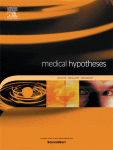Research in general is fine, wonderful even. Aim your disdain towards the MDs who dip their toes in the water and then claim to be experts for the sake of ego or career advancement. For most medical students, this is the research you are exposed to the most, and I don't blame you for hating it. Working with engineers and basic scientists is an absolute breath of fresh air compared to clinical folks. In my experience, purely clinical researchers suffer massively from the Dunning-Kruger effect, especially surgeons. Last year I listened to an orthopedic surgeon give an impassioned speech to a room of ~50 scientists during a PhD thesis defense about how one cannot draw a conclusion from N = 5. It was a plate assay with an absurdly tight distribution for all groups and p < 0.0001. The man, who is full professor at an elite medical school, genuinely thought he was educating everyone. If you're wondering, yes, his publication record is filled with 10+ articles/year titled things like, "Bones and Moans: Pain in the Era of Minimally Invasive Joint Distraction Arthroscopy" (fake title, but you get it). I'd love to say that the "cerebral" physicians (e.g., ID, Heme/Onc, Nephro, etc...)do a better job, but they generally don't unless they actually run a lab.
No one seeing patients for 80% of their working hours with no formal research training should be publishing more than 1 article per year. We need tenure committees, NIH study sections, journal reviewers, and program directors to recognize this and place a major emphasis on quality over quantity. It would help not only in terms of quality of research, but also in terms of quality of review.

